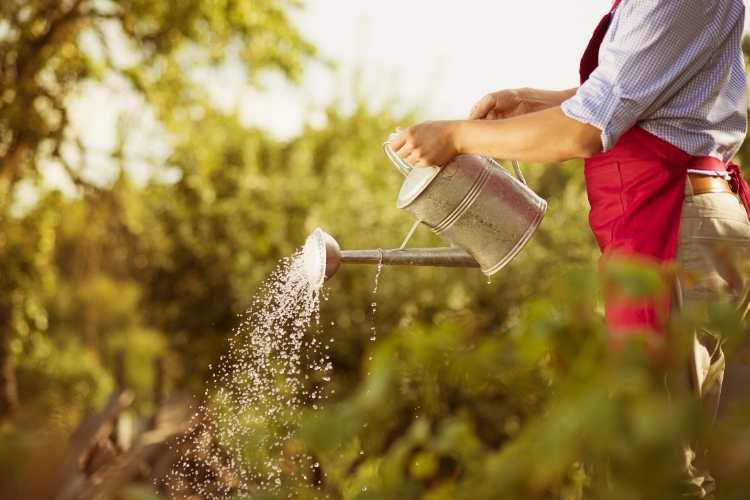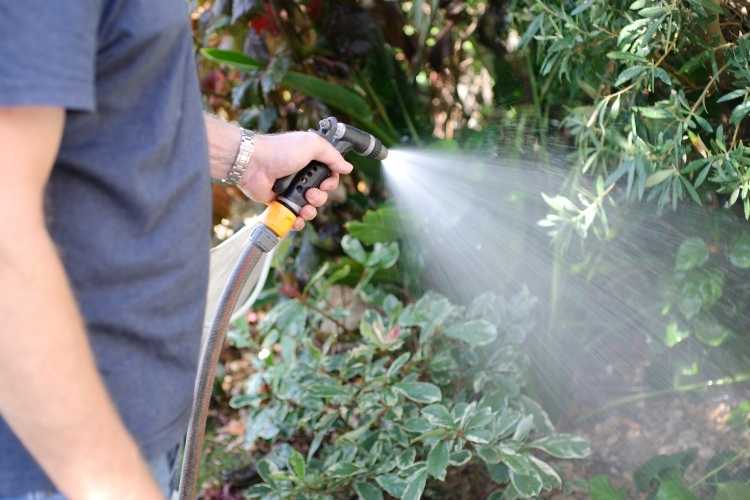5 tips on how to water and care for your garden during a hosepipe ban
23rd Aug 2022
A few weeks of sunshine and reservoir levels start to drop as weather forecasters tell us this has been ‘the driest summer since records began’. Although it seems to happen every year the country goes into panic mode about droughts and the need to save water.
Naturally a hosepipe ban is one of the measures we can take and millions of homes in the UK will be affected this month. And that’s fair enough. We all have to do our bit. But how does a hosepipe ban affect us as gardeners?
The first thing to make clear is that even during a hosepipe ban you are still allowed to water your plants. A hosepipe ban doesn’t mean no water. You can still use buckets and watering cans to water your plants. But hosepipes, sprinklers, and irrigation systems cannot be used. And you could be fined if you do so.
Subscribe to our newsletter for exclusive discounts and offers
So, while we can still, to a degree, water our plants there are ways of doing so which will be more effective and other things we can do to ensure the soil stays as moist as possible for as long as possible.
Here are a few tips on how to water and care for your garden during a hosepipe ban.
1 - Water your plants in the evening
It’s pretty much common sense but it’s worth repeating. If you water your plants in the evening when the sun has waned there is less chance of evaporation. In other words, the soil will retain more moisture for longer than if you watered your plants during the morning or afternoon when the sun is at its strongest.
2 - Water the base of the plant not the foliage
Watering the foliage of a plant won’t hydrate your shrubs. But by watering the base of the plant the roots will be able to soak up the moisture. In as much as you can with a hosepipe ban give the soil as much of a soaking as you can so the roots will be deep and not move towards the surface looking for moisture.
3 - Reuse your own water
Recycling water is a responsible thing to do but we don’t all have water butts in our garden. However, if you do then collecting and reusing rainwater is as good a way as any to get around the hosepipe ban.
Unfortunately, of course the definition of a drought is that there won’t be much rain. Once the butt has been emptied, you’ll need to move onto other ways of reusing and recycling water.

But you can recycle water. Washing up water can be used to water plants (unless of course it has bleach in it), you can even use your bathwater. All of which may sound a little extreme but recycling your water makes a lot of sense and if more of us do it we’re doing that little bit extra to save valuable natural resources.
4 - Mulch and mulch again
We all know that mulching is good for the garden. Most of us are probably happy that it helps keep down weeds. But mulch also prevents moisture loss during hot weather. Mulch will cool the surface of the soil and help the soil retain water.
It goes without saying of course that if you’re adding more mulch (and you want a layer of around two inches) wait until there has been good rainfall. The mulch will really help to keep your garden moist.
5 - Only water when you need to
I have to hold my hand up here. I am so guilty of overwatering plants. It’s something I’m trying to get better at but just because we’re in a spell of dry weather or the sun is beating down it doesn’t necessarily mean the garden needs watering.
If your plants have rust on their leaves, it may be a sign you’re overwatering. So do be careful about when you choose to whip out the watering can.
Keep your garden planted with our fantastic range of plants, shrubs, and small garden trees grown in our own Norfolk nursery.


